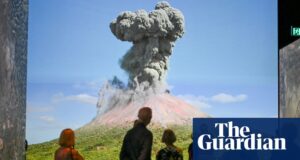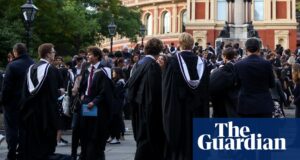Greetings from the Trans by Trans Book Club folks! Are you looking for recommendations based on our recent reads? Check out these book club read-a-likes.
*Note – Not all titles are written by trans authors about trans people.
Recommendations if you liked Thirty Names of Night
A Natural History of Transition (2021) by Callum Angus
“Contemplative ghostly slightly surreal trans masculinity”
A Natural History of Transition is a collection of short stories that disrupts the notion that trans people can only have one transformation. Like the landscape studied over eons, change does not have an expiration date for these trans characters, who grow as tall as buildings, turn into mountains, unravel hometown mysteries, and give birth to cocoons. Portland-based author Callum Angus infuses his work with a mix of alternative history, horror, and a reality heavily dosed with magic.
Scattered All Over The Earth (2022) by Yōko Tawada
“Trying to find and connect with others from your home when your refugee status has unmoored your identity”
Welcome to the not-too-distant future: Japan, having vanished from the face of the earth, is now remembered as “the land of sushi.” Hiruko, a former citizen and a climate refugee herself, has a job teaching immigrant children in Denmark with her invented language Panska (Pan-Scandinavian): “homemade language. no country to stay in. three countries I experienced. insufficient space in brain. so made new language. homemade language.” As she searches for anyone who can still speak her mother tongue, Hiruko soon makes new friends. Her troupe travels to France, encountering an umami cooking competition; a dead whale; an ultra-nationalist named Breivik; unrequited love; Kakuzo robots; red herrings; uranium; an Andalusian matador. Episodic and mesmerizing scenes flash vividly along, and soon they’re all next off to Stockholm. With its intrepid band of companions, Scattered All Over the Earth (the first novel of a trilogy) may bring to mind Alice’s Adventures in Wonderland or a surreal Wind in the Willows, but really is just another sui generis Yoko Tawada masterwork.
On Earth We’re Briefly Gorgeous (2019) by Ocean Vuong
“Trying to connect intergenerationally as refugees with older family members who might not understand you being queer”
Brilliant, heartbreaking, tender, and highly original — poet Ocean Vuong’s debut novel is a sweeping and shattering portrait of a family and a testament to the redemptive power of storytelling. On Earth We’re Briefly Gorgeous is a letter from a son to a mother who cannot read. Written when the speaker, Little Dog, is in his late 20s, the letter unearths a family’s history that began before he was born — a history whose epicenter is rooted in Vietnam — and serves as a doorway into parts of his life his mother has never known, all of it leading to an unforgettable revelation. At once a witness to the fraught yet undeniable love between a single mother and her son, it is also a brutally honest exploration of race, class, and masculinity.
The Skin and Its Girl: A Novel (2023) by Sarah Cypher
“Discovering a notebook that reveals to me that my Arab older family member was secretly also queer”
A young, queer Palestinian-American woman pieces together her great aunt’s secrets in this sweeping debut — a family saga confronting questions of sexual identity, exile, and lineage. In a Pacific Northwest hospital far from the Rummani family’s ancestral home in Palestine, the heart of a stillborn baby begins to beat and her skin turns a vibrant, permanent cobalt blue. On the same day, the Rummanis’ centuries-old soap factory in Nablus is destroyed in an air strike. The family matriarch and keeper of all Rummani lore, Aunt Nuha, believes that the blue girl embodies their sacred history, harkening to a time when the Rummanis were among the wealthiest soap makers, and their blue soap was a symbol of a legendary love. Decades later, Betty returns to her Aunt Nuha’s gravestone, faced with a difficult decision: Should she stay in the only country she’s ever known or follow her heart for the woman she loves, perpetuating her family’s cycle of exile? Betty finds her answer in partially translated notebooks that reveal her aunt’s complex life and struggle with her own sexuality, which Nuha hid to help the family emigrate to the U.S. But as Betty soon discovers, her aunt hid much more than that. The Skin and Its Girl is a searing, poetic tale about desire and identity and a provocative exploration of how we let stories divide, unite, and define us — and even wield the power to restore a broken family. Sarah Cypher is that rare debut novelist who writes with the mastery and flair of a seasoned storyteller.
The Foghorn Echoes (2022) by Ahmad Ramadan
“Queer Syrian lives disrupted by America”
Hussam and Wassim are teenage boys living in Syria during America’s invasion of Iraq in the early 2000s. When a surprise discovery results in tragedy, their lives, and those of their families, are shattered, Wassim promises Hussam his protection, but ten years into the future, he has failed to keep his promise. Wassim is on the streets, seeking shelter from both the city and the civil war storming his country. Meanwhile, Hussam, now on the other side of the world, remains haunted by his own ghosts, doing his utmost to drown them out with every vice imaginable. Split between war-torn Damascus and Vancouver, The Foghorn Echoes is a tragic love story about coping with shared traumatic experience and devastating separation. As Hussam and Wassim come to terms with the past, they begin to realize the secret that haunts them is not the only secret that formed them.
A Country Called Amreeka: Arab Roots, American Stories (2009) by Alia Malek
“Nonfiction stories about Arab Americans living in the United States 20th and 21st centuries”
A Country Called Amreeka: Arab Roots, American Stories retells a number of significant events in U.S. history through the eyes of the nation’s large and growing community of Arab Americans.
Dearborn: Stories (2023) by Ghassan Zeineddine
“Tragicomic, queer-inflected stories set in the Arab American communities of eastern Michigan”
Spanning several decades, Ghassan Zeineddine’s debut collection examines the diverse range and complexities of the Arab American community in Dearborn, Michigan. In ten tragicomic stories, Zeineddine explores themes of identity, generational conflicts, war trauma, migration, sexuality, queerness, home and belonging, and more. In Dearborn, a father teaches his son how to cheat the IRS and hide their cash earnings inside frozen chickens. Tensions heighten within a close-knit group of couples when a mysterious man begins to frequent the local gym pool, dressed in Speedos printed with nostalgic images of Lebanon. And a failed stage actor attempts to drive a young Lebanese man with ambitions of becoming a Hollywood action hero to LA, but Immigration and Customs Enforcement agents have other plans. By turns wildly funny, incisive, and deeply moving, Dearborn introduces readers to an arresting new voice in contemporary fiction and invites us all to consider what it means to be part of a place and community, and how it is that we help one another survive.
Endpapers (2023) by Jennifer Savran Kelly
“Help! I have discovered mysterious queer letters relating to art and lost loves, and they’re disrupting my gender desires and relationship to art”
2003. Artist and bookbinder Dawn Levit works in conservation at the Met. Nothing is inspiring her art; her gender identity clashes with the rest of her life; her relationship is falling apart. At work, Dawn has to present as female, even on the days when that is not true. One day she finds the torn-off cover of a 1950s lesbian pulp novel hidden behind the endpaper of an old book: Turn Her About. On the front is a campy illustration of a woman looking into a handheld mirror and seeing a man’s face. And on the back is a love letter. She becomes obsessed with tracking down the note’s author.
Hijab Butch Blues: A Memoir (2023) by Lamya H.
“A queer Muslim memoir by a gender non-conforming queer non-binary author living in North America and navigating the complexities of family, culture, and religion”
14 years old and growing up in the Middle East, Lamya is an overachiever and a class clown, qualities that help her hide in plain sight when she realizes she has a crush on her teacher — her female teacher. She’s also 14 when she reads a passage in Quran class about Maryam, known as the Virgin Mary in the Christian Bible, that changes everything. Lamya learns that Maryam was untempted by an angelically handsome man, and later, when told she is pregnant, insists no man has touched her. Could Maryam be… like Lamya? Spanning childhood to an elite college in the U.S. and early adult life in New York City, each essay places Lamya’s struggles and triumphs in the context of some of the most famous stories in the Quran. She juxtaposes her coming out with Musa liberating his people from the Pharoah; asks if Allah, who is neither male nor female, might instead be nonbinary; and, drawing strength from the faith and hope of Nuh building his ark, begins to build a life of her own — all the while discovering that her identity as a queer, immigrant devout Muslim is, in fact, the answer to her quest for safety and belonging.
This Arab is Queer: An Anthology by LGBTQ+ Arab Writers (2022)
“Memoiristic essays from 18 queer and trans Arab writers living in 11 Arab countries and across the diaspora”
This ground-breaking anthology features the compelling and courageous memoirs of 18 queer Arab writers — some internationally bestselling, others using pseudonyms. Here, we find heartwarming connections and moments of celebration alongside essays exploring the challenges of being LGBTQ+ and Arab. From a military base in the Gulf to loving whispers caught between the bedsheets; and from touring overseas as a drag queen to a concert in Cairo where the rainbow flag was raised to a crowd of thousands, this collection celebrates the true colors of a vibrant Arab queer experience.
Between Two Moons (2023) by Aisha Abdel Gawad
“Coming-of-age in Arab American neighborhoods in New York City under the twin threats of gentrification and surveillance”
A deeply moving family story about identity, faith, and belonging set in the Muslim immigrant enclave of Bay Ridge, Brooklyn following three siblings coming of age throughout one Ramadan. It’s the holy month of Ramadan, and twin sisters Amira and Lina are about to graduate high school in Bay Ridge, Brooklyn. On the precipice of adulthood, they plan to embark on a summer of teenage revelry, trying on new identities and testing the limits of what they can get away with while still under their parents’ roof. But the twins’ expectations of a summer of freedom collide with their older brother’s return from prison, whose mysterious behavior threatens to undo the delicate family balance. Meanwhile, outside the family’s apartment, a storm is brewing in Bay Ridge. A raid on a local business sparks a protest that brings the Arab community together, and a senseless act of violence threatens to tear them apart. Everyone’s motives are called into question as an alarming sense of disquiet pervades the neighborhood. With everything spiraling out of control, how will Amira and Lina know who they can trust? A gorgeously written, intimate family story and a polyphonic portrait of life under the specter of Islamophobia, Between Two Moons challenges the reader to interrogate their assumptions, asking questions of allegiance to faith, family, and community, and what it means to be a young Muslim in America.
Recommendations if you liked August Kitko and the Mechas from Space
An Absolutely Remarkable Thing: A Novel (2018) by Hank Green
“Chaotic bisexual celebrity investigates mysterious alien mechas from space”
In his much-anticipated debut novel, Hank Green — cocreator of Crash Course, Vlogbrothers, and SciShow — spins a sweeping, cinematic tale about a young woman who becomes an overnight celebrity before realizing she’s part of something bigger and stranger than anyone could have possibly imagined. The Carls just appeared. Coming home from work at 3:00 a.m., 23-year-old April May stumbles across a giant sculpture. Delighted by its appearance and craftsmanship — like a ten-foot-tall Transformer wearing a suit of samurai armor — April and her friend Andy make a video with it, which Andy uploads to YouTube. The next day April wakes up to a viral video and a new life. News quickly spreads that there are Carls in dozens of cities around the world — everywhere from Beijing to Buenos Aires — and April, as their first documentarian, finds herself at the center of an intense international media spotlight. Now April has to deal with the pressure on her relationships, her identity, and her safety that this new position brings, all while being on the front lines of the quest to find out not just what the Carls are, but what they want from us. Compulsively entertaining and powerfully relevant, An Absolutely Remarkable Thing grapples with big themes, including how the social internet is changing fame, rhetoric, and radicalization; how our culture deals with fear and uncertainty; and how vilification and adoration spring from the same dehumanization that follows a life in the public eye.
This Is How You Lose The War (2019) by Amal El-Mohtar
“Extremely messy very intense queer relationship in a sci-fi setting”
Among the ashes of a dying world, an agent of the Commandant finds a letter. It reads: “Burn before reading.” Thus begins an unlikely correspondence between two rival agents hellbent on securing the best possible future for their warring factions. Now, what began as a taunt, a battlefield boast, grows into something more. Something epic. Something romantic. Something that could change the past and the future. Except the discovery of their bond would mean death for each of them.
A Half-Built Garden (2022) by Ruthanna Emrys
“We finally made progress fixing the planet and now aliens are trying to destroy us!”
A literary descendant of Ursula K. Le Guin, Ruthanna Emrys crafts a novel of extraterrestrial diplomacy and urgent climate repair bursting with quiet, tenuous hope and an underlying warmth. A Half-Built Garden depicts a world worth building towards, humanity worth saving from itself, and an alien community worth entering with open arms. It’s not the easiest future to build, but it’s one that just might be within reach. On a warm March night in 2083, Judy Wallach-Stevens wakes to a warning of unknown pollutants in the Chesapeake Bay. She heads out to check what she expects to be a false alarm and stumbles upon the first alien visitors to Earth. These aliens have crossed the galaxy to save humanity, convinced that the people of Earth must leave their ecologically-ravaged planet behind and join them among the stars. And if humanity doesn’t agree, they may need to be saved by force. But the watershed networks that rose up to save the planet from corporate devastation aren’t ready to give up on Earth. Decades ago, they reorganized humanity around the hope of keeping the world liveable. By sharing the burden of decision-making, they’ve started to heal our wounded planet. Now corporations, nation-states, and networks all vie to represent humanity to these powerful new beings, and if anyone accepts the aliens’ offer, Earth may be lost. With everyone’s eyes turned skyward, the future hinges on Judy’s effort to create understanding, both within and beyond her own species.
A Long Way To A Small, Angry Planet (2016) by Becky Chambers
“Space opera — but make it queer”
When Rosemary Harper joins the crew of the Wayfarer, she isn’t expecting much. The patched-up ship has seen better days, but it offers her everything she could possibly want: a spot to call home, a chance to explore the far-off corners of the galaxy, and some distance from her past. And nothing could be further from what she’s known than the crew of the Wayfarer.
Gearbreakers (2021) by Zoe Hana Mikuta
“Mechs and teen girls fighting an oppressive evil government as well as their own feelings”
In an age of 100-foot-tall mechanical deities run by a tyrannical regime, two teenage girls on opposite sides of a war discover they are fighting for a common purpose — and falling for each other.
Iron Widow (2021) by Xiran Jay Zhao
“Pacific Rim-style mechs and a horribly misogynistic world, with romance among the broken”
Pacific Rim meets The Handmaid’s Tale in this blend of Chinese history and mecha science fiction for YA readers. The boys of Huaxia dream of pairing up with girls to pilot Chrysalises, giant transforming robots that can battle the aliens that lurk beyond the Great Wall of China. It doesn’t matter that the girls die from the mental strain. When 18-year-old Zetian offers herself up as a concubine-pilot, it’s to assassinate the ace male pilot responsible for her sister’s death. But when she gets her vengeance, it becomes clear that she is an Iron Widow, a rare kind of female pilot who can sacrifice males to power up Chrysalises instead. To tame her frightening yet valuable mental strength, she is paired up with Li Shimin, the strongest male pilot in Huaxia, yet feared and ostracized for killing his father and brothers. But now that Zetian has had a taste of power, she will not cower so easily. She will take over instead, then leverage their combined strength to force her society to stop failing its women and girls. Or die trying.





















